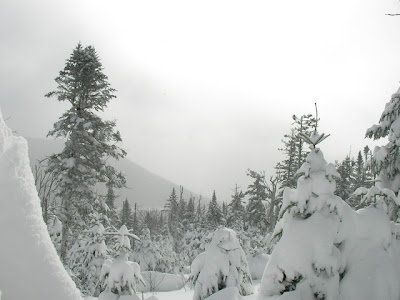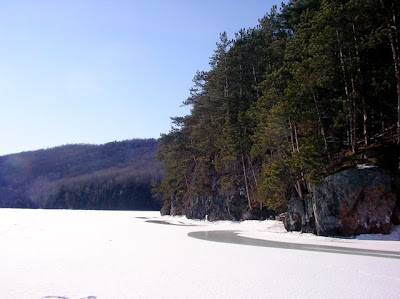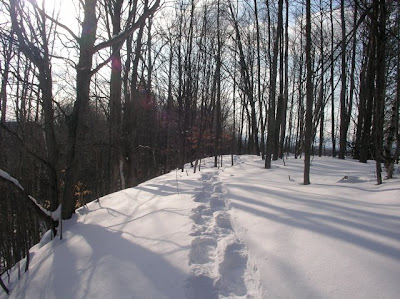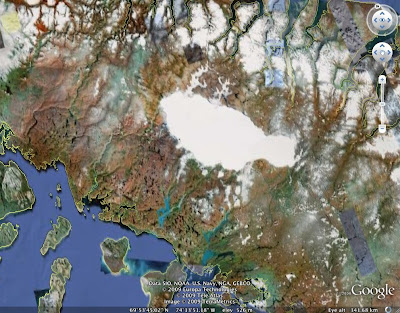 Dam at Montmagny, Québec
Dam at Montmagny, QuébecMy concern for Canada's minority Conservative government's secret plan to alter the public's right of navigation on the small rivers of Canada and the removal of the requirement for environmental assessment and public consultation when "works" are undertaken on these rivers prompted me to write 13 letters to various people intimately involved in this decision. I emailed the letters on Sunday. Now I thought it would be interesting to see how long it takes the recipients to respond and in what fashion they do so. It will be a little exercise in democracy-in-action!
Today, Tuesday, is the second working day since sending my email. First to respond - Monday morning early - and the only one to write a personal letter stating he will be "looking into" the issue and contact his Member of Parliament, was William Munsey, deputy leader of the Green Party of Canada. Interesting.
Next to respond was Mario Laflamboise, a Liberal member and VP of the Permanent Committee of Transport and Infrastructure. His note was a simple acknowledgement of my email. Okay, but I wanted more.
This morning came another acknowledgement of my email this time from Jim Prentice's office. He's a Conservative MP and Minister of the Environment. This is the first email from a member of the Conservative government, but he'll need to do more to impress me.
I'll post updates on this item letting you know who responds and what measures they are prepared to take on behalf of maintaining the public's right to have unhindered access to Canada's rivers, and, most especially, that the environmental safeguards and reviews are kept stringent and ecologically sound in any new legislation or amendments.
Update #1 - Thursday, Feb 12One more reply late yesterday, this time from Bruce Hyer, MP for the New Democratic Party. He wrote an informative note mentioning the NDP are on top of this issue and are working to see the amendments meet the goals of a wider group of Canadians than the Conservatives have in mind. This move by Harper's Conservatives certainly makes one wonder who the proposed amendments are intended for and why the environmental safeguards would be left in the Minister's hands alone?
Update #2 - Friday, Feb 13Two more replies in today. The first was from David Lewis, Research and Operations Coordinator for the Green Party. He provided me with some additional links on the subject as well as the party's position. I have the feeling that these people are interested in this issue, although, they do not sit in the House.
The second reply was a simple letter of reception from the office of Joe Volpe, the Official Opposition Transport Critic. Other than assure me that Volpe will get to see my letter, nothing else was mentioned. Are these people interested? It's hard to say...




















